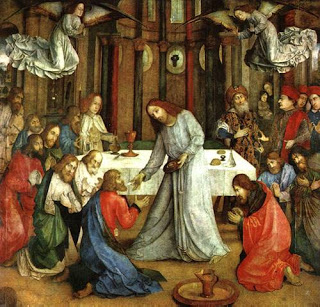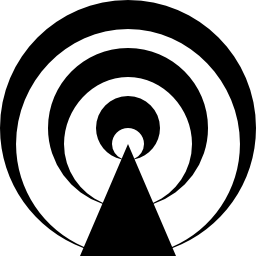 Tabernacles Full, Churches Empty
Tabernacles Full, Churches Empty
One of the most striking visible features of the Sacred Triduum, if you are good at the game of “spot the difference”, is to notice that there is a significant change in the sanctuary.
From the time before the Mass of the Lord’s Supper on Holy Thursday, right until the holy communion is finished during Easter Vigil mass on Holy Saturday, the tabernacle remains empty.
It’s a striking image: the doors of the tabernacle are wide open, exposing a gaping void. Therein our Lord once dwelled, beckoning the wearied to throw their cares upon Him. Normally, before entering and exiting our pews, we give homage by genuflecting toward this abode, perhaps catching a glimpse of the sanctuary lamp that burned as a reminder of His presence. But not on Holy Thursday or Good Friday or for the good part of the Easter Vigil. The lamp is extinguished, the doors thrown open, the tabernacle emptied, the church stripped. In our desperation to see Him, we can feel the pain of Mary Magdalene as she exclaimed: “They have taken away my Lord, and I do not know where they have laid him.” (John 20:13)
Due to this pandemic outbreak this year, where priests throughout the world would have to celebrate the Sacred Triduum alone and without a congregation, Rome has made some alterations to the rubrics (liturgical rules of our celebration). For example, this year, we are suppose to return the Blessed sacrament to the tabernacle instead of processing it to a side altar. Jesus will remain in the tabernacle throughout this Triduum and the sanctuary lamp will remain lit, even on Good Friday.
For me it is a poignant irony. Our tabernacles will remain filled this year but our churches are empty. Jesus is present but the people are physically absent. I would never have envisaged celebrating mass without a congregation for Holy Week, but this is the painful reality we find ourselves in this year, through no fault of ours nor by choice.
On a normal Holy Thursday our tabernacles would be emptied before the Mass of the Lord’s Supper. Have you ever wondered why? It makes better sense to empty the tabernacle on Good Friday, because our Lord died on this day. But why on Holy Thursday, why should we empty our tabernacles on the day the church celebrates the institution of two sacraments - the Eucharist and the priesthood?
Our empty tabernacles serve as a reminder to us that there was a time when there was no Eucharist, there was a time when masses were not celebrated, when Holy Communion was not available. But all this changed with the sacrifice of our Lord Jesus Christ, who gave up His body and spirit on the cross so that we may have life. Our Lord gave us the Eucharist as a lasting memorial of His death and resurrection.
So, by emptying our tabernacles on Holy Thursday, the Church is telling us - to really understand what God has done for us in Christ Jesus. We need to experience this absence, so that we may experience His presence more keenly.
As a priest, I yearn for your presence during this time of social distancing. What would a priest be without the Eucharist? Nothing, for we are ordained precisely for the Eucharist. No other person is able to say the words, “This is my Body .. This is my Blood,” and actually produce the real change in the bread and wine. And, what would a priest be without his flock? Nothing, for we are ordained to sanctify our people by administering these sacred mysteries. The sacraments were instituted by Christ for the people, for their salvation. They are not meant to be trophies on a shelf or exhibits in a museum to be admired.
I guess this experience of longing and hungering would be very different for all of us this year. It is not because our tabernacles are empty but our churches are. As a priest I long and hunger for the return of my flock that had been entrusted to me by Christ. For the people, they long and hunger for Christ in the Eucharist which only the priest can give.
This year, we are all required to experience severe fasting. It must be noted that the Church does not call us to fast from sinful things but good things in order to draw closer to God. We must fast from the good of communal life. We must fast from being physically present in our churches to celebrate mass. It is painful but remember fasts do not last forever. There is a saying often associated with Easter which marks this transition - “The Fasting has ended, the Feasting has begun.” Now we fast, so that our anticipation of the feast may be heightened.
In the past, we may have taken both our communion with our fellow human beings and our sacramental Communion at the Mass for granted. This pandemic and the physical separation it has caused may seem to be evil but God can always turn it into something good. Social isolation is everyone’s cross to take up now. But just as Good Friday leads to Easter, if we embrace our cross, it will lead to a fullness of life beyond our wildest imagination. And one day, you too shall return and fill our empty churches where Christ awaits you eagerly in the tabernacle to welcome you home.

